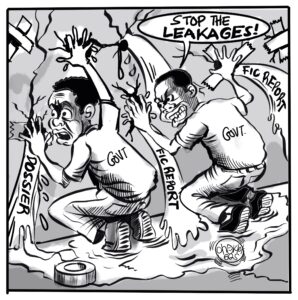Wooden utility poles are the backbone of Zambia’s electrification infrastructure, connecting urban centers, rural communities, and remote areas with essential power supply. These poles are widely used by ZESCO Limited, Zambia’s primary electricity provider, due to their availability, renewable nature, insulating qualities, and cost-effectiveness. However, maintaining a vast network of wooden poles is challenging, as these poles are vulnerable to decay, insect infestation, and weather damage, which can lead to unplanned failures and costly replacements.
In 2021/22, ZESCO awarded a USD 107 million contract to several South African and Zimbabwean companies for the supply of 9- and 12-meter wooden poles, aiming to address more than 67,000 outstanding connections. While this decision addressed an immediate need, it has also raised questions regarding quality control, the reliance on foreign suppliers, and the potential benefits of developing a local wood supply industry.
However, ZESCO’s recent procurement decisions in 2024 mark a significant step toward bolstering Zambia’s power infrastructure. The approval of the multi-million contracts for wooden poles amidst growing scrutiny underscores the importance of strategic procurement and maintenance practices in the utility sector. The adherence to the Public Procurement Act No. 8 of 2020 and its 2023 amendment reflects ZESCO’s commitment to transparency and regulatory compliance.
According to information accessed from online sources, the tendering process followed Open National Bidding (ONB) guidelines, which emphasize the inclusion of fully Zambian-owned firms to support local industry. This decision aligns with Zambia’s broader objectives of economic empowerment and capacity building within the country. However, some concerns have been raised and highlights the need for clear guidelines on evaluating entities under ONB guidelines. Although ZESCO has yet to disclose the specific evaluation criteria, it is likely that the assessment involved financial stability, experience, and quality standards. Given that wooden poles are prone to rapid degradation due to environmental factors, selecting suppliers with proven wood preservation methods and stringent quality control measures is essential to avoid frequent replacements and ensure sustainable infrastructure. By following the Public Procurement Act and related amendments, ZESCO has demonstrated a commitment to transparency thus far. This is particularly important in light of recent scrutiny surrounding public procurement practices in Zambia. Maintaining transparency in supplier selection helps build public trust and ensures that the procurement process remains fair and competitive.
While prioritizing local suppliers is a positive step toward economic growth, ZESCO should also consider environmental sustainability in its procurement practices. For instance, evaluating suppliers based on their use of sustainable forestry practices and low-impact wood treatments could enhance the longevity of poles and reduce the ecological footprint of the infrastructure.
Two years ago, ZESCO chose to procure wooden poles from companies in South Africa and Zimbabwe, citing a lack of capacity within the local market. Remarkably, in just two years, we have seen a significant increase in local capacity to supply these poles. Given that wooden poles take years to grow, we can assume that local suppliers may still need to outsource poles to meet demand.
In light of this, we appeal to ZESCO and the Zambia Public Procurement Authority (ZPPA) to require successful bidders to engage forestry and wood preservation specialists as quality control officers. These specialists would ensure that the treated wooden poles meet national and international standards, protecting public investments and supporting long-term infrastructure resilience.
It’s concerning that many imported poles have shown early signs of failure (excessive splits) shortly after installation. Therefore, we also urge the Zambia Bureau of Standards to revisit and enhance the standards for utility pole installations. Ensuring stricter quality control and improved standards will help safeguard our infrastructure, support local industries, and enhance service reliability for Zambians
Procurement Background and Industry Challenges
In June 2022, ZESCO’s procurement committee selected foreign suppliers, including Timber Quality Timbers (South Africa) and Capital Timber Ltd (Zimbabwe), to supply wooden poles. This decision sparked debate, as some stakeholders argue that Zambia should focus on developing local capabilities for pole production, thereby creating jobs and bolstering the national economy. The procurement of foreign-made poles, while addressing immediate infrastructure needs, underscores the importance of establishing a sustainable, local supply chain.
Historically, issues with pole quality, such as improper preservative treatments and susceptibility to decay, have resulted in premature failures, highlighting the need for stringent quality control. The high cost of replacing defective poles further emphasizes the need for a comprehensive maintenance plan that safeguards public investment.
Technical Challenges and the Importance of Effective Maintenance
Wooden utility poles face significant challenges, particularly due to decay that often begins near the ground line where moisture exposure is highest. Moisture levels above 20% promote the growth of fungi, which leads to decay compounded by insect activity. Checks and splits in eucalyptus wood—a common choice for poles—allow moisture and insects to access untreated heartwood, accelerating deterioration.
The National Energy Policy of 2019 advocated for efficient resource use and sustainable practices, aligning well with the need for a proactive maintenance strategy. Such a strategy would enable utility companies to extend the lifespan of their wooden poles, conserve resources, reduce operational costs, and enhance the reliability of Zambia’s power grid.
Key Strategies for Effective Utility Pole Management
To maximize the durability of Zambia’s wooden utility poles, a multifaceted approach is essential. The following strategies can collectively improve the effectiveness of utility pole maintenance and management:
· Rigorous Quality Control in Procurement: ZESCO and other electricity providers must establish stringent standards for pole quality and preservation treatment. Suppliers should provide comprehensive certification of wood treatments, ideally verified by local testing facilities. Ensuring adherence to these standards is essential to avoid premature failures and ensure that poles meet Zambia’s operational and environmental standards.
· Regular Inspections and Monitoring: Conducting inspections at least three times a year allows for early detection of decay or structural weaknesses. Inspections should focus on the ground line where decay is most likely, as well as checking for signs of insect infestation and internal rot. Regular monitoring enables timely interventions that prevent larger, costlier problems.
· Cross-Disciplinary Collaboration: Effective maintenance requires expertise from utility engineers, wood preservation specialists, linesmen, and technicians. By involving wood scientists and preservation experts, utility companies can more effectively address the challenges posed by wooden pole maintenance.
· Data-Driven Asset Management: A centralized system to track pole age, inspection records, and maintenance history can significantly improve resource allocation. Identifying high-risk poles before failure allows utility companies to prioritize resources and reduce unplanned outages, ultimately improving service reliability.
· Sustainable Sourcing and Local Industry Support: ZESCO’s recent contract awards highlight the importance of developing a domestic supply chain for wooden poles. Supporting local businesses would not only reduce dependency on imports but also stimulate the economy and improve control over pole quality. Future procurement strategies should aim to prioritize Zambian-owned suppliers capable of producing poles that meet national standards.
Proactive Maintenance to Reduce Litigation Risks
Unplanned pole failures disrupt power supply and expose utility companies to potential legal claims. Proactive maintenance is essential for Zambia’s electricity providers, including ZESCO, to mitigate decay and insect damage. By integrating wood preservation specialists into their maintenance teams, utility companies can lower failure rates and reduce the risk of legal repercussions from consumers impacted by service interruptions.
Moving Toward a Sustainable and Reliable Power Infrastructure
Wooden utility poles are vital assets in Zambia’s power infrastructure. As ZESCO continues to invest in new poles to meet growing electricity demand, it is critical that these investments are paired with a proactive maintenance strategy for in service utility poles. By implementing rigorous procurement standards, ensuring frequent inspections, adopting advanced post preservation techniques, and supporting the growth of local pole suppliers, ZESCO can enhance the longevity of its wooden poles, conserve resources, and maintain reliable power delivery across Zambia.
With a well-defined maintenance plan, Zambia can reduce the environmental impact of frequent pole replacements, control operational costs, and uphold the integrity of its power distribution network for future generations.
Chaliafya Katungula
Forestry/Wood Preservation advocate
Innovation and Intellectual Property
























